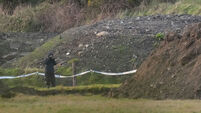DPP review emerged after 10 years
The contents of that review, provided to senior gardaí in 2001 and to Mr Bailey’s lawyers last November on the advice of the Attorney General, are expected to be addressed by Mr Bailey’s lawyers today.
He is appealing a High Court order for his extradition to France in connection with the 1996 murder.













